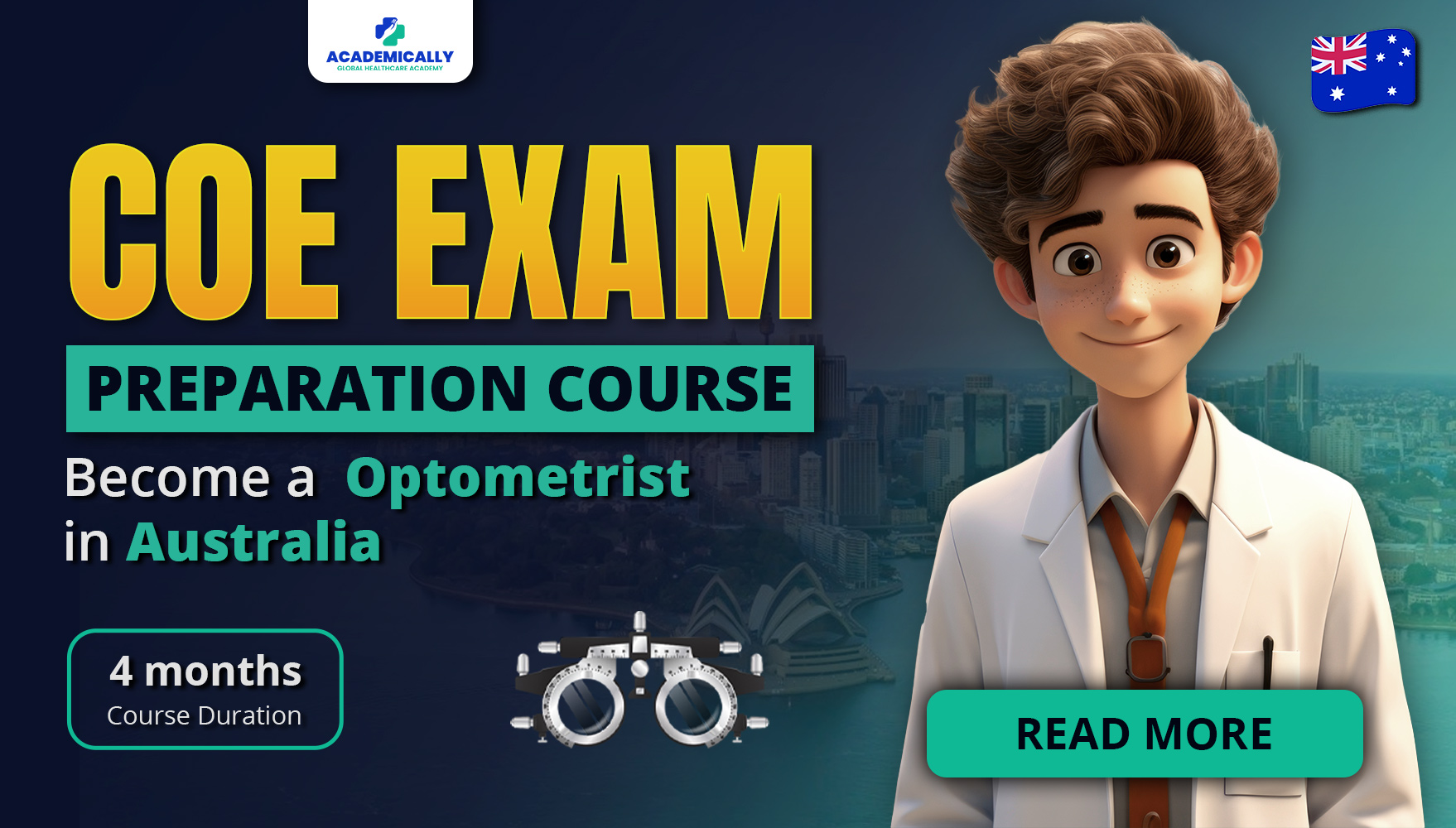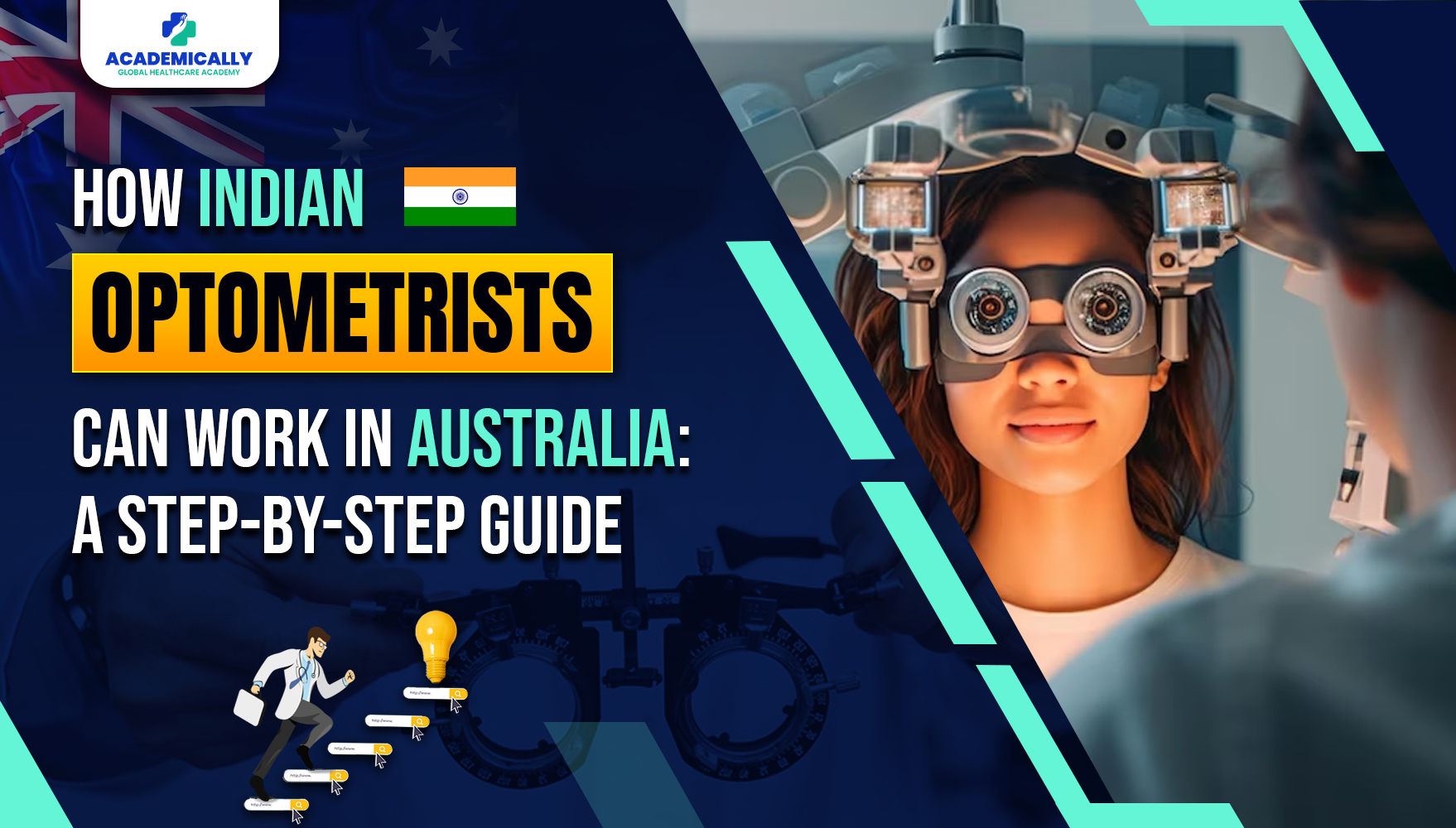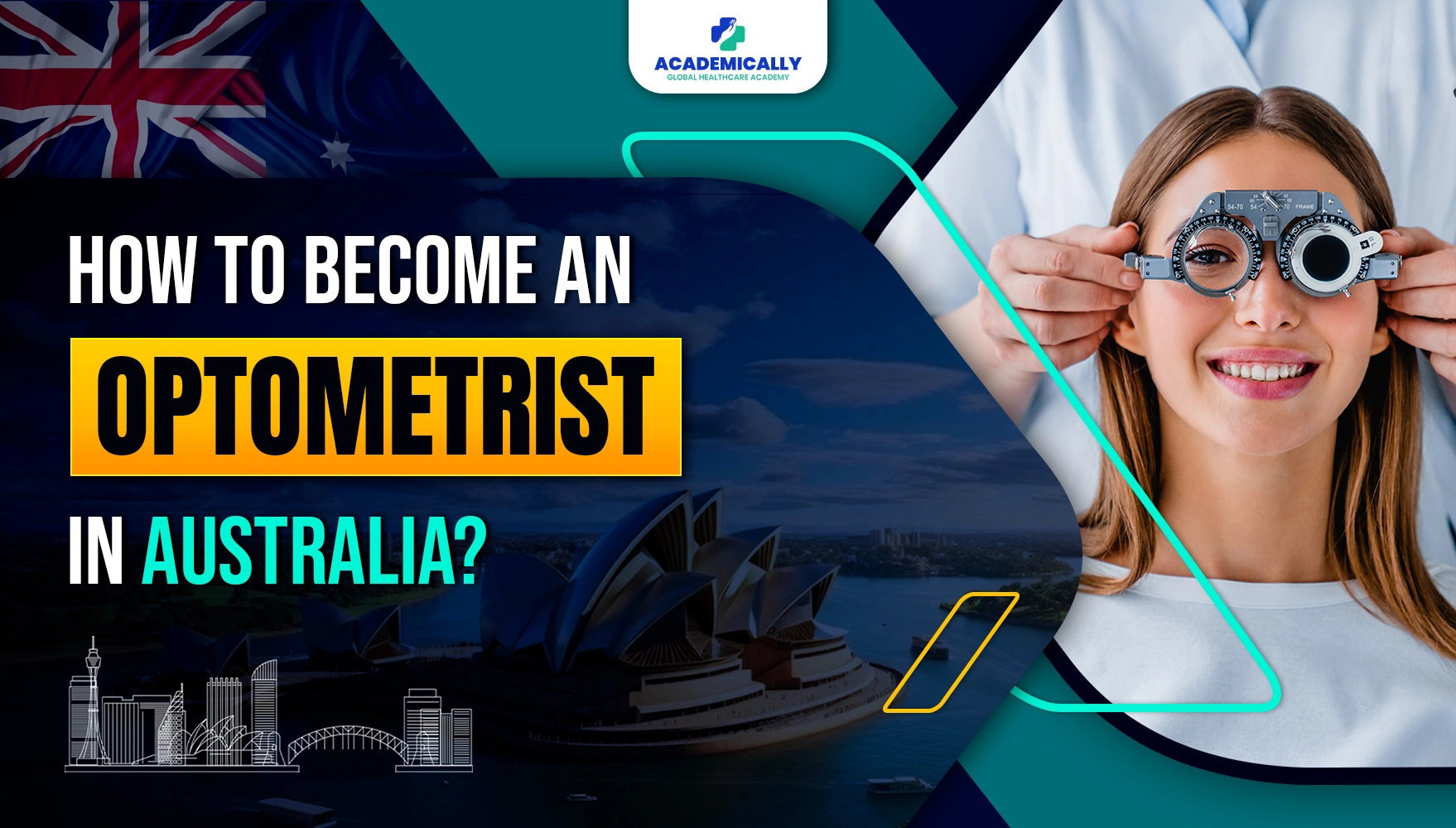About OCANZ Competency in Optometry Examination
The OCANZ COE exam consists of two written exams, two clinical exams and one online cultural safety training.
Successfully passing the OCANZ COE exam is a significant milestone for optometrists, marking their readiness to contribute to eye care in Australia.
The examination process is designed to uphold the high standards of optometric practice, emphasising theoretical knowledge and practical application in a culturally sensitive manner.

Who can take the exam?
Optometrists with a valid degree of 4-year full-time or 3-year study have completed one year of supervised clinical practice.
Steps Involved
This is the step-by-step process of how an Indian optometrist or an international optometrist can work in Australia.
Skill Assessment / Document Evaluation
The first thing is getting your degree, bachelor's or master's to get evaluated by the Optometry Council of Australia and New Zealand (OCANZ).
Once eligible to apply, you must complete the Form 2 application provided by the OCANZ. The processing time is around four weeks.
English Proficiency
OCANZ (Optometry Council of Australia and New Zealand) does not mandate candidates to submit proof of English language proficiency for the COE.
Still, it recommends that the OBA requirements serve as a guideline for the English language competency required to undertake the COE.
The OBA has specific criteria for English Language Skills. The candidate must score a minimum of 7 bands individually and overall in IELTS. For the PTE Academic, a minimum overall score of 65 and a minimum score of 65 individually in each component is required. For the OET, you must have a minimum score of B in each of the four elements (listening, reading, writing, and speaking).
Written Exam
The written examination consists of two components:
- Clinical Science examination: A three-hour multiple-choice paper encompassing fundamental topics in biomedical, vision, optical science, and clinical science.
- Diagnosis and Management examination: A three-hour paper featuring short answer questions to assess the candidate's proficiency in patient diagnosis and management.
The written exam happens twice a year, and candidates are not restricted in the number of attempts for the written examination.
In case of failure in one of the papers during the first sitting, candidates are granted one additional opportunity to retake only the failed paper. If unsuccessful on the second attempt, they must retake both papers on subsequent tries. Failure in both papers at any sitting necessitates a complete reexamination of both parts.
Cultural Safety Training for Optometrists
After clearing the OCANZ COE written exam, every optometrist must undergo Cultural Safety Training to appear for the clinical examination.
This training program is online and comprises six tutorials and associated assessment tasks. The program is designed to be self-paced, allowing candidates to log in at their convenience and complete the training on their schedule.
Clinical Exam
The clinical examination also consists of two components:
- Skills Station examination (clinical skills examination)
- Patient examination (four patient examinations in a clinical setting)
Unlike the written examination, the clinical examination must be completed within three years of passing the written examination or within six consecutive examination sessions, considering the candidate's eligibility to participate in these sessions. This provision accounts for situations where the clinical examination may need to be biannual.
Registration with the Optometry Board of Australia
After completing the required exams and training, the next step is to apply for registration with the Optometry Board of Australia. Prepare a comprehensive application, including all necessary documents and fees. The Board will review your application and, upon approval, grant you the right to practice as an optometrist in Australia.
Finding a Job
Begin the job search process by exploring various avenues. Utilise online job portals, network with professionals in the field, and directly contact optometry practices or healthcare institutions. Securing a job offer is a critical step for the subsequent visa application process.
Getting a Visa
Once you have a job offer and a positive skills assessment for migration, apply for a general skilled migration visa to work in Australia. This visa is commonly used for skilled professionals.
Why Australia?
Australia stands out as an ideal destination for Indian optometrists seeking employment, and here's why:
Simplified Exam Process
The pathway to practising as an optometrist in Australia is relatively straightforward-you must successfully clear the required examination, i.e., OCANZ Competency in Optometry Examination and get registered with the Optometry Board of Australia (OBA).
High Demand for Optometrists
The demand for optometrists in Australia is substantial, providing ample opportunities for employment and career growth.
Streamlined Skilled Migration Visas
Australia has recently increased the availability of visas for skilled migration, facilitating a smoother transition for optometrists looking to relocate and establish themselves in the country.
Competitive Salaries
Australia provides attractive and competitive salaries for optometrists. This financial incentive, coupled with the country's high standard of living, makes it an appealing choice for professionals seeking financial stability.
Improved Work-Life Balance
Australia offers a better work-life balance, allowing optometrists to not only excel in their careers but also enjoy a fulfilling personal life.
Professional Development
Optometrists may find opportunities for professional development and further education in Australia. The country has reputable educational institutions and professional organisations that can contribute to the growth and advancement of optometrists' careers.
Conclusion
This step-by-step guide is a comprehensive roadmap for Indian optometrists aspiring to work in Australia.
By following these outlined steps, Indian optometrists not only position themselves for success in meeting Australian standards but also open doors to a future of diverse opportunities, professional growth, and contributions to the global optometry landscape.
Australia's robust healthcare infrastructure and commitment to quality patient care are promising destinations for optometric professionals.
If you are thinking about moving to Australia for better opportunities, feel free to get in touch to learn about a customised course designed specifically for the OCANZ COE exam.



